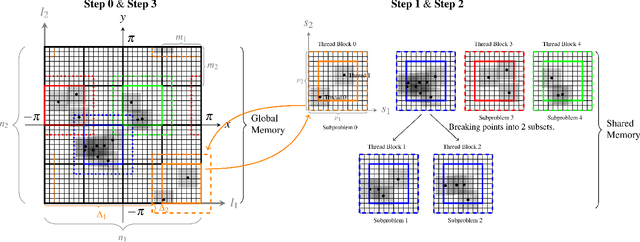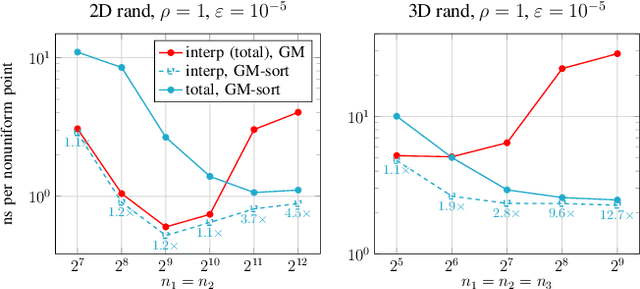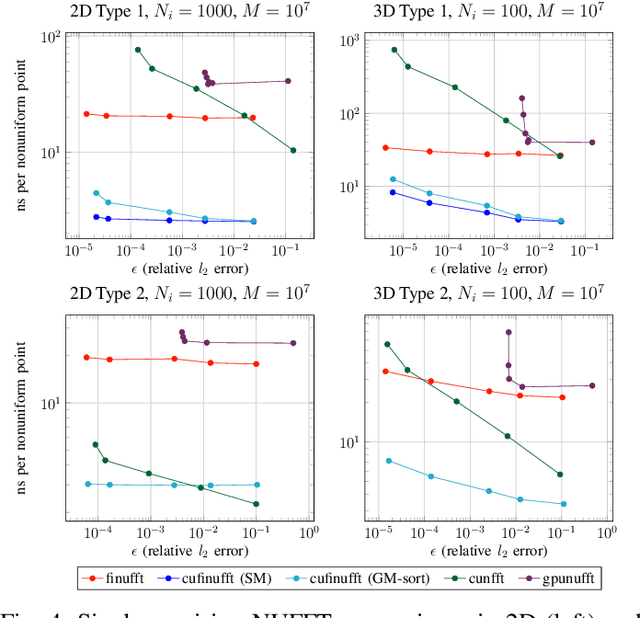Alex H. Barnett
cuFINUFFT: a load-balanced GPU library for general-purpose nonuniform FFTs
Feb 16, 2021



Abstract:Nonuniform fast Fourier transforms dominate the computational cost in many applications including image reconstruction and signal processing. We thus present a general-purpose GPU-based CUDA library for type 1 (nonuniform to uniform) and type 2 (uniform to nonuniform) transforms in dimensions 2 and 3, in single or double precision. It achieves high performance for a given user-requested accuracy, regardless of the distribution of nonuniform points, via cache-aware point reordering, and load-balanced blocked spreading in shared memory. At low accuracies, this gives on-GPU throughputs around $10^9$ nonuniform points per second, and (even including host-device transfer) is typically 4-10$\times$ faster than the latest parallel CPU code FINUFFT (at 28 threads). It is competitive with two established GPU codes, being up to 90$\times$ faster at high accuracy and/or type 1 clustered point distributions. Finally we demonstrate a 6-18$\times$ speedup versus CPU in an X-ray diffraction 3D iterative reconstruction task at $10^{-12}$ accuracy, observing excellent multi-GPU weak scaling up to one rank per GPU.
Validation of neural spike sorting algorithms without ground-truth information
Aug 27, 2015



Abstract:We describe a suite of validation metrics that assess the credibility of a given automatic spike sorting algorithm applied to a given electrophysiological recording, when ground-truth is unavailable. By rerunning the spike sorter two or more times, the metrics measure stability under various perturbations consistent with variations in the data itself, making no assumptions about the noise model, nor about the internal workings of the sorting algorithm. Such stability is a prerequisite for reproducibility of results. We illustrate the metrics on standard sorting algorithms for both in vivo and ex vivo recordings. We believe that such metrics could reduce the significant human labor currently spent on validation, and should form an essential part of large-scale automated spike sorting and systematic benchmarking of algorithms.
 Add to Chrome
Add to Chrome Add to Firefox
Add to Firefox Add to Edge
Add to Edge